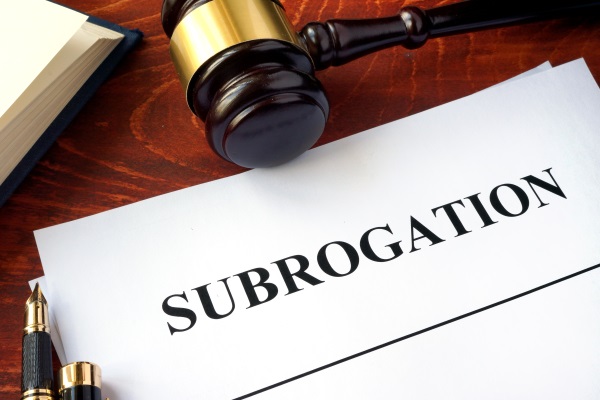If you have ever been involved in a car accident, you may know more about insurance than you ever expected—or wanted—to know. You may also know that insurance can be an extremely complicated subject. When insurers throw in terms like “subrogation,” the complexities can increase. While the term “subrogation” sounds rather grim, in fact, subrogation can be a way of protecting you and your insurer from paying for an accident which is not your fault. Subrogation is the act of one party claiming the legal rights of another that it has reimbursed for losses.

In this situation, your insurance company is “subrogated” to the rights of your policy which allows them to recovery any amount paid out on your behalf. In this example, successful subrogation equals a refund for you and your insurers, helping to keep your rates low since your insurer did not have to pay for an accident which was not your fault.
When Fault is Disputed, How Could Subrogation Affect Your Case?
Subrogation can also come into play when it is unclear who is at fault for the accident. Let’s assume you are partially at fault for the accident, so you file a claim with your own insurer, pay the deductible and your insurance company pays your expenses related to the accident. However, since you were not entirely at fault for the accident, your insurance company may decide to subrogate the other driver’s insurance company to receive all, or part, of what it paid out on your behalf.
If your insurance is successful in the subrogation, you might even be reimbursed for your deductible. Subrogation is heavily dependent on the insurance laws in each state, which can vary greatly.
Waiver of Subrogation
The best part about subrogation is that, as the policyholder, you don’t have to do much of anything during subrogation. Your insurance company is “stepping in your shoes,” and acting on your behalf.
Now the bad news: many insurance companies may try to get the plaintiff to sign a waiver of subrogation, and many people do sign the waivers because they do not really understand what they are signing. Suppose the at-fault driver who hit you wants to settle the accident quickly, but without your insurance company in the picture. His or her insurance company asks you to sign a waiver of subrogation, which prevents your insurance company from acting on your behalf should something go wrong. It is virtually never a good idea to sign a waiver of subrogation, particularly if you have not yet spoken with a knowledgeable auto accident attorney.
Contact our Atlanta Car Accident Attorneys Today
At Schnipper Law, P.C., our Atlanta car accident attorneys understand the complications car accident victims face after a serious accident and how to negotiate with insurance companies to get them the maximum compensation. Call Schnipper Law P.C., at (404) 545-5845 for a free initial consultation and review of your case. We can help you recover the money you need to put your life back together after a serious accident.
Additional Reading
